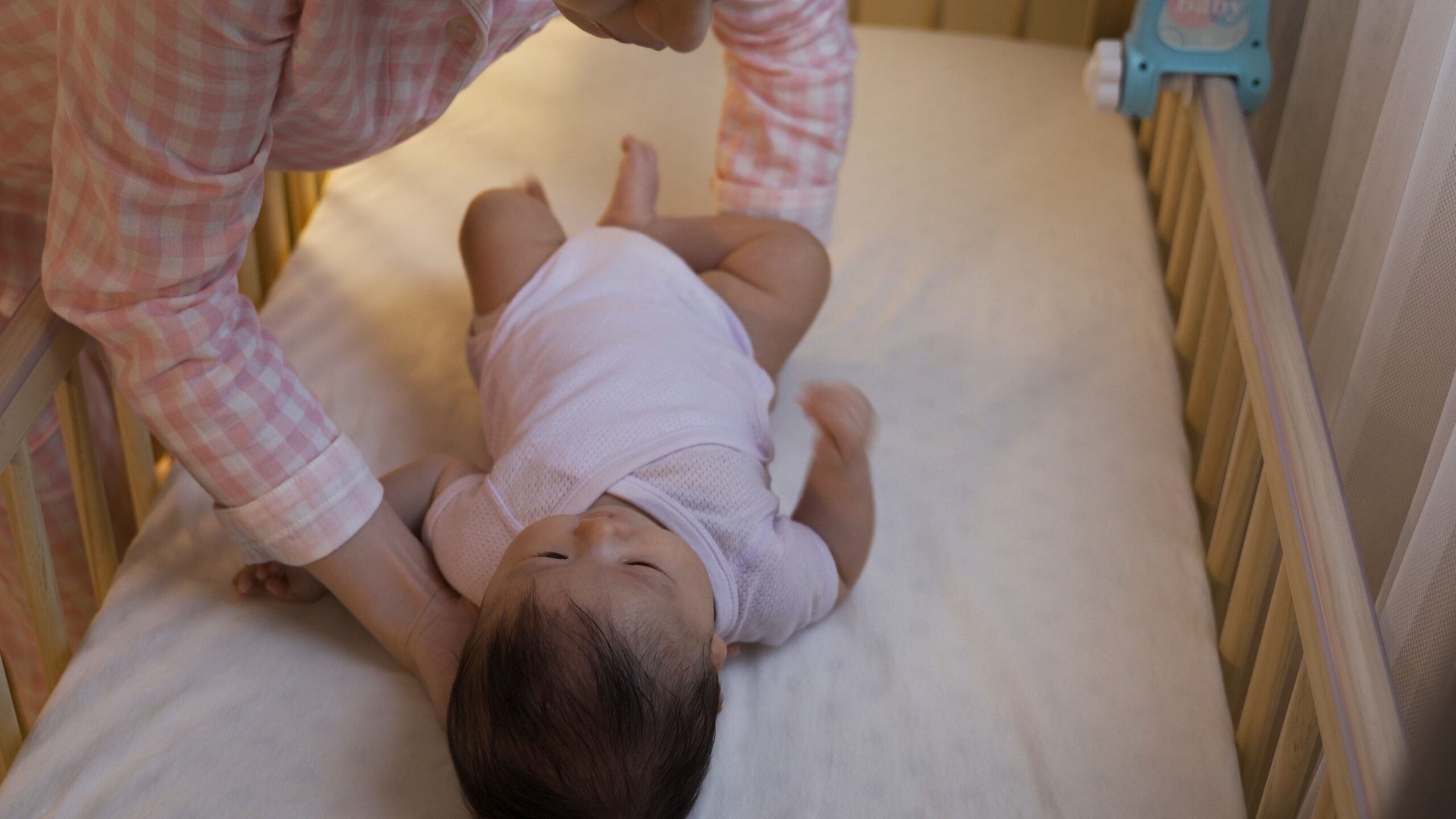Welcome back to the third instalment of our blog series dedicated to helping parents navigate the challenging terrain of returning to work while grappling with a baby who struggles to sleep. As we look deeper into this topic, we explore effective strategies aimed at assisting you in establishing healthy sleep patterns for your baby aged 6 months or older before your return to work.

As the end of parental leave approaches, the thoughts of returning to work can bring about mixed emotions for new parents. Among the many concerns is how to ensure your baby is sleeping well before you transition back to work. Establishing healthy sleep habits is not only crucial for your baby’s well-being but also for your sanity as you juggle work responsibilities.
Top Ten Tips to Help Your Older Baby Sleep Well:
1. Start Early:
If possible, start implementing good sleep habits a month or so before you return to work. This will give you and your baby time to adjust and establish a routine. It’s important to remember that every baby is different and may take some time for your baby to adjust to new routines. Be patient and flexible, and don’t be afraid to make adjustments if something isn’t working. It may take some trial and error to find what works best for your baby.
2. Understanding why your baby is waking in the night:
It’s common for babies to wake up during the night for various reasons, including hunger, discomfort, developmental milestones, or simply seeking reassurance. Identifying why your baby is waking can help you implement targeted strategies to help them sleep more soundly.
3. Aim for a regular bedtime:
Establish a regular bedtime for your baby and aim to keep to it as much as possible. Consistency helps regulate your baby’s internal body clock, making it easier for them to fall asleep and wake up at the same time each day.
4. Create a Calm Environment:
To signal to your baby that it’s time to wind down and sleep an hour before sleep create a soothing sleep environment by dimming the lights, putting toys away, turning off screens and reducing noise levels. Then together have about 10 or 15 minutes of quiet fine motor playtime; this will help calm and quieten your little one’s busy brain and is a wonderful bonding time for you both.
5. Develop a Bedtime Ritual:
Establish a calming bedtime routine to help your baby relax before sleep. This could include activities like a quick 5-minute “Spa-like” bath, then heading straight to the bedroom to get dressed for bed, and then reading a quiet bedtime story; it’s best to avoid books with flaps and sounds at this time.

It takes commitment and consistency so it is best for both parents to decide on a simple bedtime routine that you are happy to stick to every night.
Try to make sure the routine is both relaxing and enjoyable so both you and your baby look forward to bedtime. There’s no need to take too long; your baby could lose focus and get distracted. Aim for your bedtime routine to last no longer than 45 minutes – 30 minutes is often ample.
6. Consider if your older baby has sleep on-set associations:
As babies get older, they can understand cues for sleep and start to recognise the start of their bedtime routine means it’s bedtime.
Babies often develop associations between falling asleep and certain factors, such as being rocked to sleep and while sleep associations may initially help your baby fall asleep, they can also contribute to night wakings. As your baby completes their sleep cycles during the night, they may naturally awaken and stir. At times, they may fully wake up and need your help once again to help them to get back to sleep.
Gently weaning your baby from sleep onset associations can be a gradual process that involves introducing new sleep routines to gently transition your baby away from sleep associations. For example, if your baby is used to being rocked to sleep, gradually decrease the amount of rocking each night until they can fall asleep with minimal or no rocking. Start initially with just bedtime, when your baby’s sleep drive and melatonin levels are high and will help your baby fall asleep more easily.
7. Overtiredness:
Ironically, overtiredness can also lead to more frequent night wakings. When babies become overly tired, their bodies produce stress hormones that can make it harder for them to fall asleep and stay asleep. Establishing a consistent bedtime routine and ensuring your baby gets enough daytime sleep can help prevent overtiredness and promote better sleep at night.
8. Environmental Factors:
External factors such as noise, light and temperature can also affect your baby’s sleep. Create a calm and soothing sleep environment by preparing the bedroom; with a small night light with a warm orange/amber or red colour that will not interfere with sleep. Check the room temp to ensure it’s between 18 and 20 degrees C.
9. Falling asleep
Around 15 minutes before you want your little one to drift off, end the bedtime routine by saying “goodnight.” Many parents have a special phrase they use every night, like “Time for sleep, love you, see you in the morning.” Then, give your baby a kiss and cuddle before tucking them into bed for the night.

10. Napping well helps with night sleep:
Getting regular naps during the day can help improve your baby’s nighttime sleep. Consistent nap times help regulate the internal body clock, making it easier for little ones to fall asleep and stay asleep at night. Being over-tired can increase cortisol levels which may impact the quality of your baby’s sleep, making it less restorative and more fragmented and be the cause of early rising.
However, too much sleep in the day, especially close to bedtime, may mean your baby hasn’t had time to build good levels of “sleep-drive” (adenosine) and may struggle to fall asleep at their usual bedtime.
If you would like more information on naps head over to our nap guide.
Don’t hesitate to reach out for support from family, friends, or online communities for parents. Sharing experiences and seeking advice from others who have been through similar challenges can provide valuable reassurance and practical tips for managing night wakings.
If you would like to speak to one of our sleep consultants about how you can guide your baby towards better sleep, please reach out today. We can chat with you about how we can help offer practical and gentle sleep strategies.
You find my blog on Balancing work and your baby’s nighttime waking a helpful guide.
Feel free to give us a call if you’d like to chat about your little one’s sleep! We’re here to help.
Written by Mandy Gurney RGN.RM.Dip HV.

